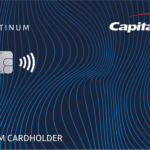
Many credit repair services promise to address inaccurate items on your report and remove negative marks, but not all are genuine; many try to take advantage of you by lying, using illegal tactics, or engaging in fraud. It is essential that when considering credit repair companies it’s wise to know what red flags to look out for in case any company attempts to take advantage of you.
Companies that demand payment before providing services are likely breaking the law. According to the Credit Repair Organizations Act, companies cannot request pre-payment for their services before performing them and must charge you only after completion.
Credit repair companies that guarantee specific increases to your score or remove certain marks are unlikely to abide by the law. To build up your score effectively, the best approach is ensuring your reports are accurate while working to establish your own positive credit history.
Some credit repair agencies advise consumers to commit unlawful or immoral acts in order to remove negative marks from their report, such as lying to credit bureaus or filing false identity theft or police reports. Such behaviors violate the law and could lead to severe penalties.
Note when considering credit repair companies: they cannot guarantee any results. As there are so many variables involved with credit reporting systems, credit repair companies cannot always remove inaccurate information from your report.
Avoid companies claiming they can remove negative marks on your report caused by fraud. If you have fallen prey to identity theft, however, you will have to deal with your creditors directly in order to resolve their concerns about what has occurred.
Credit repair scams typically involve companies promising to clean up your credit for a fee, by exploiting legal loopholes by filing numerous disputes with credit bureaus and then banking on them investigating each dispute before it can be removed from your report. Unfortunately, this strategy doesn’t work and can actually lead to more issues over time.
Scams involving credit privacy or protection numbers are illegal and should be reported immediately to the Federal Trade Commission (FTC). Companies offering to sell you new Social Security numbers that do not link back to existing records could even involve theft of the previous number!
Before hiring a credit repair agency, conduct your own due diligence by researching agencies with high customer satisfaction ratings that comply with the Credit Repair Organizations Act and can be found listed by the Better Business Bureau’s directory of accredited businesses. If unsure of a company, request for a pause online so no monthly fees will be assessed until your subscription resumes again later on – then resume when ready!



